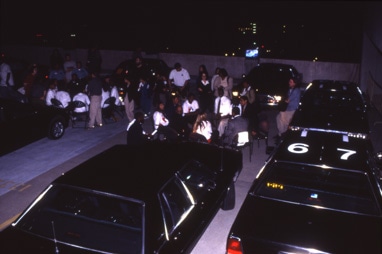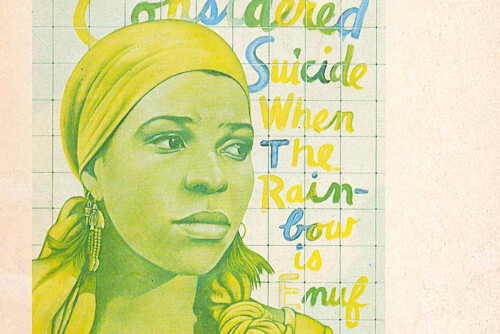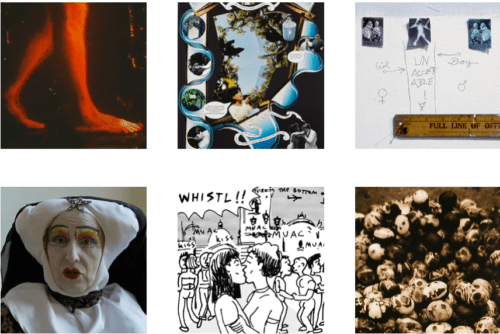Overview
How should feminism respond to the violence that has erupted in the wake of September 11, 2001? First, it needs to challenge the impulse to treat September 11 as a point of origin for the waves of violence that have followed in its wake. Although the singularization of this date functions as an act of memorialization, its isolation also posits this day as one that is simultaneously without history and the beginning of history. Temporally as well as spatially, the attacks on the Twin Towers are now thought through the concept of zero, and to begin one’s story before that date, that is, to think historically, suddenly seems unpatriotic or irreverent to the dead. 1 Consequently, as time begins again, questions surrounding the legitimacy of George W. Bush’s election to the presidency are hushed because they precede “our time,” and the dissenting voices trying to speak outside of the new temporality are quickly denounced. Pretending that history did not exist prior to September 11, Bush stated on September 14, 2001, the ironically entitled National Day of Prayer and Remembrance: “Americans do not yet have the distance of history. But our responsibility to history is already clear: to answer these attacks and rid the world of evil.” 2 By setting the clock back to zero, we allow history to be something that is always to come, the future story of American “answers” to acts of violence that can only ever be understood outside of time, which means they can never be understood at all. A few days later, in his “Address to a Joint Session of Congress and the American People” (September 20, 2001), Bush once again betrayed his anxiety about time as he urged the nation to take control of it: “This country will define our times, not be defined by them . . . we have found our mission and our moment.” 3
If the terrorist attacks served to clarify the “mission” and the “moment” of the right in the United States, did they do the same for feminists? Does this date mark a new era of clarity for all political groups, including feminist ones, creating a renewed sense of solidarity in the wake of our long-standing internal doubts and divisions? Well, yes and no. One could argue that feminism, or at least the language of women’s liberation, attracted more public attention, even support, than it had for some time as a result of Laura Bush’s address to the nation about the plight of Afghan women. A couple of my self-proclaimed feminist colleagues felt proud to see feminists putting aside partisan politics in order finally to do something concrete for real women (this was especially true of the person who helped draft Laura Bush’s speech). Yet I, like many others, was, and still am, angered by both the speech and its impact. I am angry that feminist discourse was appropriated by the Bush administration to justify its militarism; its Christian, right-wing social agenda; and its dismantling of hard-won civil liberties. I am angry that the endlessly repeated film footage depicting violence against Afghan women contained no historical information that would have enabled audiences to understand the role the United States played in allowing the political situation in Afghanistan to reach such disastrous levels in the first place. The Bush administration used Laura Bush’s “speaking for” Afghan women to create the impression that Afghan women had no voices of their own, thereby allowing it systematically to disregard the appeals of the Revolutionary Association of the Women of Afghanistan (RAWA) to the United States to desist from a military invasion of Afghanistan and later, of Iraq. This administration has since shown remarkable indifference to the U.S.-backed warlords’ treatment of the very women whose dignity it promised to restore, confirming that abating Afghan women’s suffering was never seriously on the agenda. Reporting on life in post-Taliban Afghanistan, Shauna Curphey writes:
Even more disheartening is the situation of women in Afghan’s warlord-ruled provinces. According to a U.N. report on women . . . there have also been arson attacks on girls’ schools in several provinces. The report also indicates that forced marriages, domestic violence, kidnapping of young girls, harassment and intimidation of women continue unabated. 4
As public support grew for Laura Bush’s white, middle-class, militaristic women’s movement, feminist peace activists and academic or “elite” feminists began to be repeatedly ridiculed and misrepresented for their resistance to Bush’s domestic and global violence. Most commonly, these attacks, written almost exclusively by female journalists, accuse antiwar feminists of indifference to the real plight of women under threat. Wendy McElroy, for example, recently published an article / fantasy for Fox News entitled, “Iraq War May Kill Feminism as We Know It,” in which she appropriates the voices and subject positions of Islamic feminists in order to advance a right-wing, Christian, antifeminist political agenda. 5 The argument begins by claiming that, “Western feminists . . . are hostile to religion, and especially to Christianity,” a sentiment that McElroy suggests “places Western feminism on a collision course with its Muslim counterpart . . . Islamic feminism tends to be pro-family and not inherently anti-male.” She goes on to draw a correlation between American feminism’s purported indifference to Islamic feminists and its long-standing disrespect of “women who are stay-at-home moms, pro-life, home-schoolers, or who disagree with them on virtually anything.” “It has discounted the majority of American women,” she declares. “Why would it treat foreigners with more respect?” 6
Similarly, Cathy Young, in a Boston Globe article, “Feminism and Iraq” (March 24, 2003), accuses feminists and antiwar protesters of tending to “lapse into moral equivalency.” Young quotes Tammy Bruce, former head of the Los Angeles chapter of NOW, as stating that NOW put “political concerns . . . over the good of women.” Young continues, “Bruce believes that the American feminist elite is doing it again in its opposition to the war in Iraq.” Perhaps most disturbingly, Young quotes Bruce’s message to NOW president Kim Gandy, Alice Walker, and other feminist war protesters: “‘There are thousands of dead Iraqi women who know how you betray them, in the name of politics, in the name of hating George W. Bush, in the name of your own cynical political hypocrisy.'” Like Laura Bush, who told the nation what “Afghan women know” in her radio address of November 17, 2001, Bruce shamelessly transforms dead Iraqi women into ventriloquist puppets who know only what she knows, and who are too dead to protest this transformation. 7
These attacks on feminism can be simply annoying, but they can also confuse us during what is, by any standards, a particularly difficult time for feminism, potentially leaving us as silent subjects. Judith Butler has recently described this as “a sad time for feminism, even a defeated time,” and suggests that feminist theory may “have no other work than in responding to the places where feminism is under challenge.” 8 But when faced with the urgent need for effective political resistance to Bush’s acts of death and destruction, the time we spend on these discussions can come to seem indulgent. Ranjana Khanna comments that, while conflict within feminism has become “part of the agenda to be addressed,” it can also result in “paralysis, or a rather self-satisfied navel gazing on the part of some who agonize about how to be ethical when it comes to dealing with gender politics outside of one’s own context.” 9 Political paralysis is something we surely cannot afford at the moment, but patient, deliberate and historical thinking, I would argue, is not the same as paralysis. It may well be that academic feminism, like poetry, “makes nothing happen,” but we should remember that poetry for W. H. Auden still “survived” as “A way of happening, a mouth.” 10 In these times, when the need to “make things happen” becomes a reason to give up on thought, diplomacy, human rights, international law, and the United Nations, feminism’s insistence on retaining internal complexity and difference in the face of violent events may constitute its most valuable contribution, allowing it to emerge as an indispensable “mouth,” one that has as much to say to the newly invigorated left-in-formation as it does to Bush.
- Shortly after the attacks, Judith Butler commented on this temporal prohibition: “It is that date . . . that propels the narrative. If someone tries to start the story earlier, there are only a few narrative options.” Butler, “Explanation and Exoneration, or What We Can Hear,” Grey Room 7 (Spring 2002): 57-67, at 58.[↑]
- George W. Bush, United We Stand: A Message for All Americans (Ann Arbor, MI, 2001), 6.[↑]
- Bush, United We Stand, 16.[↑]
- Shauna Curphey, “Women in Afghanistan Fear New Taliban-Like Rule,” Women ENews, May 15, 2003, available at http://rawa.fancymarketing.net/womensenews.htm.[↑]
- McElroy is the editor of ifeminists.com, http://www.ifeminists.com.[↑]
- Wendy McElroy, “Iraq War May Kill Feminism as We Know It,” Foxnews.com, March 18, 2003, http://www.foxnews.com/story/0,2933,81318,00.html.[↑]
- Caryl Rivers, “Where Have All the Women Gone?” Women’s ENews, April 17, 2003, available at Alternet.org, http://www.alternet.org/story.html?StoryID=15677. In this article, Rivers notes, “As the war dominates the headlines, journalists, scholars and others interested in public policy have noticed a growing silence: the absence of women’s voices in the nation’s elite media . . . The situation is dire for women scholars and journalists who wish to influence the public agenda of the nation,” she complains. “I haven’t seen it so bad since the pre-women’s movement days when women were completely invisible in the media.”[↑]
- Judith Butler, “The End of Sexual Difference?” in Feminist Consequences: Theory for the New Century, ed. Elisabeth Bronfen and Misha Kavka (New York: Columbia University Press, 2001), 414-34, at 418.[↑]
- Ranjana Khanna, “Ethical Ambiguities and Specters of Colonialism: Futures of Transnational Feminism,” in Feminist Consequences: Theory for the New Century, ed. Elisabeth Bronfen and Misha Kavka (New York: Columbia University Press, 2001), 101-25, at 101.[↑]
- W. H. Auden, “In Memory of W. B. Yeats,” (1939) in The English Auden: Poems, Essays and Dramatic Writings 1927-1939, ed. Edward Mendelson (London: Faber and Faber, 1977), 241-43, at 242.[↑]



